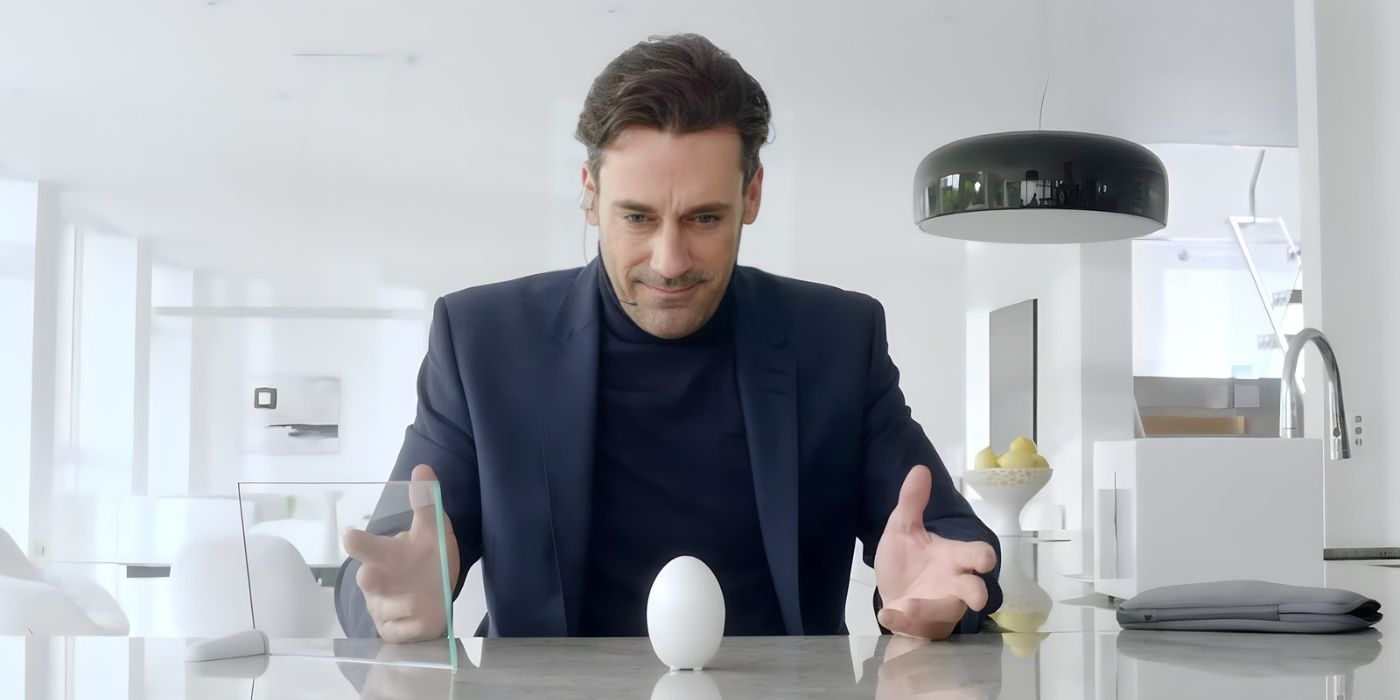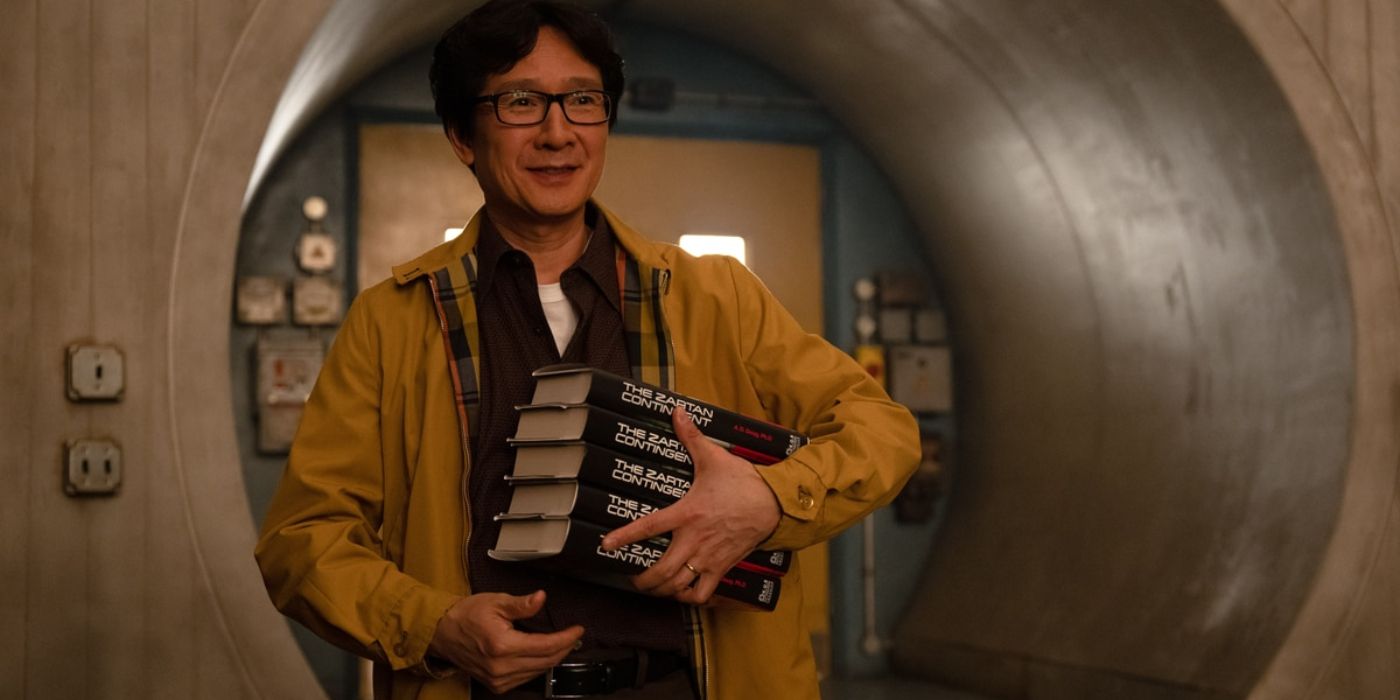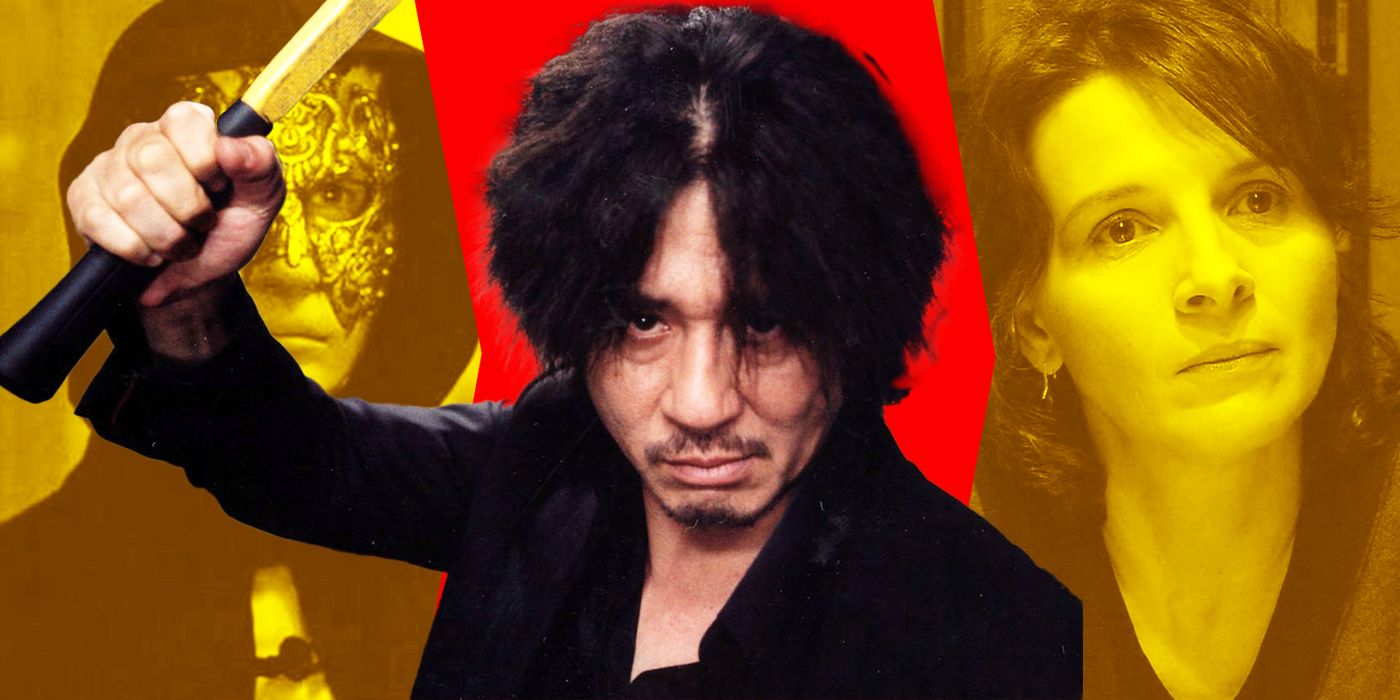The Big Picture
- Black Mirror uses technology as a microscope to explore themes of jealousy, obsession, paranoia, and moral decay, creating a terrifying viewing experience.
- The cookies in “White Christmas” are an advanced version of the cookies we use online, but they are sentient beings devoid of rights and protections.
- The episode highlights the horrifying ordeal of isolation and the mind’s desperate need for stimulation, creating a universally recognized sense of discomfort and dread.
Black Mirror isn’t typically categorized as a horror anthology, but anyone who’s binged a few episodes knows the lingering sense of discomfort each episode elicits. There are many Black Mirror episodes that scare us, but they don’t do so in the traditional sense with supernatural elements, grotesque monsters, or blood-curdling psychopaths. Instead, the show takes an existing piece of technology and nudges it forward a few years to see how it’s altered certain aspects of society, and all of it feels so grounded and plausible, which makes the viewing experience terrifying.
But it’s not the technology itself that’s terrifying. Technology is neutral —what’s terrifying is the way humanity wields it and finds interesting ways to make the world a worse place for everyone. Black Mirror uses technology as a microscope to meditate on the human condition, exploring themes of jealousy, obsession, paranoia, and moral decay. And Black Mirror is most effective and powerful when it’s exploring the universally recognized existential dread through technology, as it has in “White Christmas.”
Black Mirror
An anthology series exploring a twisted, high-tech multiverse where humanity’s greatest innovations and darkest instincts collide.
- Release Date
- December 4, 2011
- Main Genre
- Sci-Fi
- Rating
- TV-MA
- Seasons
- 6
- Studio
- Netflix
What Happens In “White Christmas”?
Black Mirror‘s Christmas special, which first debuted a year after Season 2’s premiere, starts with Matt Trent (Jon Hamm) and Joe Potter (Rafe Spall) stuck in a cabin during the holiday with nothing to do but reflect on the situation and decisions that led them there. Their conversation meanders across three different stories. For the first tale, Matt recounts his past, where he used to assist men in seducing women by guiding them through an implant, a hobby of his which eventually led to a tragic death. In the second story, Matt reveals that his actual job is to “train” cookies, which are digitally replicated consciousness of clients, copies designed to offer a personalized experience in their smart homes — but he doesn’t “train” cookies as much as he tortures them into submission. Finally, Potter decides to open up for the third story and reveals that he’s killed someone in a fit of anger.

This Hidden Reference in ‘Black Mirror’ Season 6 Calls Back to a Previous Episode
It’s also more insidious and widespread in ‘Black Mirror’s universe than we initially believed.
After the story ends, Matt reveals that Potter isn’t actually a human being — he is a cookie, a clone of the original Potter complete with his memories, experiences, and feelings. And Matthew was only trying to fish a confession out of him in exchange for leniency on his own prison sentence. The two are inside a digitally simulated world where the perception of time can be tweaked, and Potter’s cookie has been given the impression that he’d been in the isolated cabin for five years, which made it easier for Matthew to break him. A police officer walks up to the real Potter and tells him that his cookie has given the full account of what transpired and that Potter’s confession will no longer be necessary, implying that his cookie’s confessions are considered legitimate in this world. Counterintuitively, though, cookies are devoid of any rights and protections for themselves. As the episode ends, the same police officer tweaks Potter’s cookie to experience a thousand years for each minute that passes in the real world. She plays a Christmas playlist for Potter to listen to for the next 24 hours in the real world, which would translate to 1,440,000 years inside the digital world.
‘Black Mirror’s Cookies Share a Similar Purpose With Ours
As tech companies make unimaginable leaps in providing comfort and convenience to their clients, little is left to be desired. As soon as a consumer needs something, be it food, entertainment, or luxury, companies are able to fulfill those desires instantaneously. Now, the only logical next step is to meet their needs before the consumers themselves even know what they want. This has led to an era of extreme personalization and that’s where the concept of cookies comes in. The cookies seen in “White Christmas” are an advanced version of the already existing cookies we use online. The cookies in our world are the data stored on a device or a browser that we use. Their purpose is to remember the websites we access, passwords we create, email addresses we enter, etc. All of it provides a personalized experience and makes our lives a bit more convenient.
The cookies in Black Mirror have a similar purpose, but a disturbing difference is that these cookies are sentient. Cookies are, in essence, replicated consciousness of a company’s client. But it doesn’t matter that they are artificial. They are aware of all the memories and experiences possessed by the person they’re replicated from. They are capable of experiencing the full spectrum of human emotions in all of its intensity. They hold the same dreams, desires, anxieties, and horrors possessed by their real-life counterparts, but they aren’t considered sentient beings or given any rights.
“White Christmas” Doesn’t Show Us Every Horrifying Moment, But It Doesn’t Need To
When Black Mirror‘s cookies are first brought into existence, they freak out, so they are provided an orientation where they learn that they are just a bunch of codes, no matter how real they feel. From now on, their purpose is to add convenience to the lives of their counterparts, doing minor tasks like making toast the way they prefer, maintaining the perfect temperature, and so on. At first, the cookies protest this and refuse to become a slave to themselves. But the companies have an efficient and cruel system of breaking their will. Cookies who refuse to comply are banished into a white void where they have nothing to do and no means of mental stimulation. They don’t even have a body, and they can’t fall asleep. They are only left with their minds to meander, and given enough time in isolation with absolutely nothing to do, the mind becomes the enemy of the self. The ordeal that the cookies suffer through is similar to solitary confinement but much worse. Solitary confinement is largely considered one of the most inhumane torture tactics, known to trigger meltdowns and desperate measures given that the human mind will do anything to stimulate itself.
Of course, the episode doesn’t show how exactly the cookies are tortured, what they think of, and what they do in the prolonged period of isolation — but it doesn’t need to, either. The feeling of isolation is universally recognized, perhaps even more so due to Covid lockdowns. Many of us have, at some point, experienced a sense of discomfort right after we lay our heads on the pillow and before we fall asleep. Tucked away from all the distractions and unable to fall asleep, the mind begins conjuring painful memories and worst-case scenarios, looping through the dark thoughts that never seem to end, that is unless you fall asleep. Dismally, Black Mirror‘s cookies can’t even fall asleep and are forced to relive an empty existence in perpetuity. It’s a fate worse than death, and it’s why this special episode of the series remains its most terrifying yet.
Black Mirror is available to stream on Netflix in the U.S.
Watch on Netflix





